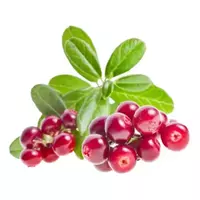Cowberry

Translated from Latin, the name lingonberry sounds like "cow grass. " It is not known whether animals really love lingonberry, but people's love for this berry has long been known and undeniable.
Lingonberry is an extremely common and highly productive shrub. They start collecting it at the end of summer and do it throughout the fall. It is noteworthy that lingonberries can not only be collected and frozen, but also torn already frozen. In both cases, lingonberries do not lose their taste and nutritional properties. And the useful properties of lingonberry are truly inexhaustible.
Benefits of lingonberry
The composition of lingonberry in large quantities includes organic acids such as apple, lemon, oxalic. In addition to these acids, lingonberries contain a significant amount of vitamins C, A and E, as well as pectin substances. For example, the content of vitamin A lingonberries is significantly superior to lemons and blackcurrants. The benefits of lingonberry are in the high content of manganese and copper. Copper has a beneficial effect on the body weakened by diabetes mellitus. In the treatment of this ailment, lingonberry is an indispensable product.
In folk medicine, lingonberry is also actively used to treat gastritis accompanied by reduced acidity. No less, and, according to many people, the leaves of lingonberry are even more useful. Decoctions and infusions from the leaves of this berry have an excellent diuretic effect, so lingonberry is used in the treatment of diseases of the kidneys, gallbladder and bladder. The astringent effect of lingonberry is beneficial for stomach diseases.
Lingonberry juice improves appetite and contributes to the speedy recovery of the body after past diseases. The benefits of lingonberry are that it has a bactericidal, antiseptic and light laxative effect. Effective control of harmful bacteria is possible due to the content of a large amount of benzoic acid in lingonberries. Lingonberry is effective for rheumatism, osteochondrosis, fever, gout, colds and many other ailments.
The taste of lingonberry is highly appreciated in cooking. Lingonberry berries are used as a filling for all kinds of pies, added to marinades, syrups and various drinks. For long-term storage, lingonberries can not only be frozen, but also soaked and marinated. Strikingly, lingonberry jam and lingonberry juice are often served with meat and game dishes. The calorie content of lingonberry is 46 kcal. 100 gr. Its use cannot harm the figure, but it will significantly improve the digestion process and the general condition of the body.
Harms of lingonberries
Damage to lingonberries can affect people suffering from peptic ulcers of the stomach and duodenum. Lingonberry is also contraindicated for gastritis with increased acidity.
lingonberries 46 kKal
Energy value of lingonberry (Ratio of proteins, fats, carbohydrates - ju):
Proteins: 0.7 g (~ 3 kCal)
Fats: 0.5 g (~ 5 kCal)
Carbohydrates: 8.2g (~ 33kCal)
Energy ratio (bj | y): 6% | 10% | 71%
 Español
Español Français
Français Português
Português Русский
Русский 简体中文
简体中文 繁體中文
繁體中文 日本語
日本語 한국어
한국어 العربية
العربية Türkçe
Türkçe Қазақ
Қазақ Deutsch
Deutsch Italiano
Italiano Українська
Українська
